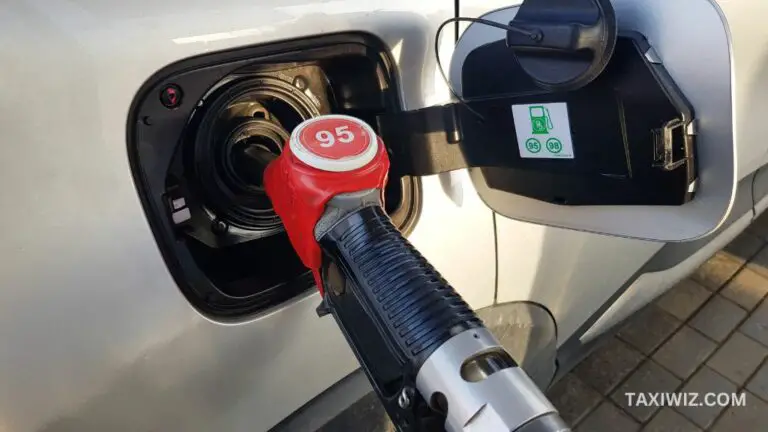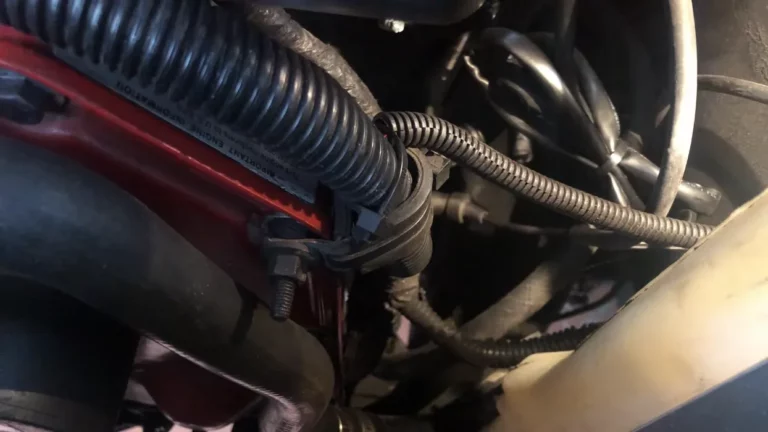Should the Radiator Fan Turn on When AC is on?
You may have noticed that when you turn on your AC, the radiator fan comes alive too. Is this a necessary procedure? Should the radiator fan turn on when AC is on?
Yes, it should.
This is due to the fact that the radiator fan also acts as a condenser fan, and its primary job is to dissipate heat. Thus, it activates when the AC system is putting more pressure & heat on the engine.
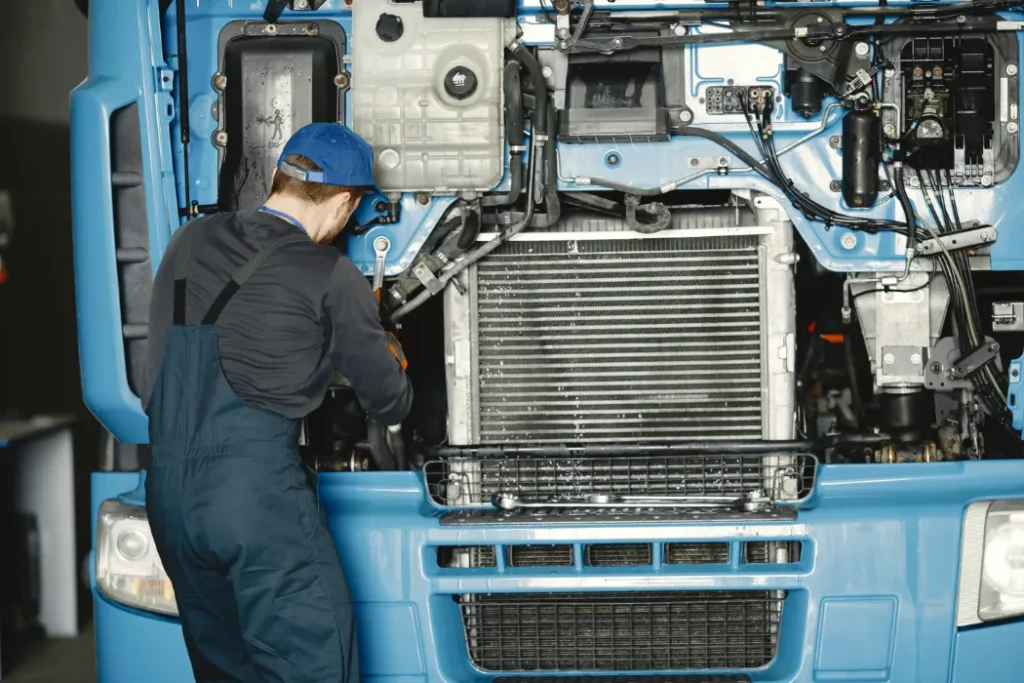
Explaining the AC Functionality
To understand why the radiator fan activates when your turn on the AC, you will need to understand how an AC system works on a vehicle.
An AC system of a vehicle revolves around the concept of heat transfer.
The simplified explanation is using a refrigerant to transform the heat generated from the air inside the car’s engine compartment to cool air and then release it outside in the passenger & driver area.
There are several components that make up the AC system, but the most important ones are:
- Compressor
- Condenser
- Evaporator
- Expansion valve
The compressor is the heart of the system and initializes the overall functionality. It pressurizes the refrigerant to transform the air into high-pressured heated gas.
This gas then flows through the condenser. In this part, the refrigerant releases the heat and turns into high-pressured liquid.
Afterward, this liquid moves to the evaporator. As air passes over it, the liquid refringent absorbs the heat, which cools the air down.
This cooled air is then blown into the car’s interior in order to provide a comfortable & cooling experience for the occupants.
Role of Radiator Fan in AC Functionality
The radiator fan plays two major roles in the overall AC functionality of a vehicle. And they are:
- Acting as a secondary condenser fan
- Preventing engine overheating
Acting As a Second Condenser Fan
As mentioned earlier, the condenser is a crucial part of the AC system and works to dissipate heat that is absorbed by the refrigerant.
Due to absorbing heat constantly, the condenser itself becomes extremely heated. When that happens, it won’t be able to dissipate heat, resulting in system failure.
A condenser fan is placed to ease this situation, but most of the time, the heat can be overwhelming for one fan to deal with.
That is why many vehicles are designed in a way so that the radiator fan can act as a secondary condenser fan to aid the existing one and help in heat dissipation.
This way, the efficiency of the AC system isn’t compromised, and you can enjoy cool temperatures inside the car without a hitch.
Cooling Down the Engine & Preventing Overheating
The primary job of the radiator fan is to assist the radiator to dissipate heat from the engine. It does this by increasing the airflow through the radiator.
Doing this enhances the cooling performance of the cooling system resulting in the engine staying within the optimal temperature threshold.
When we turn on the AC of our vehicle, it puts extra pressure on the engine as now it will have to power the AC system along with the other functionalities.
To do so, the engine will need to work faster, and this means it will generate extra heat than it was doing when the AC was off.
An overheated engine, even for a few seconds, can cause damage to the internal components.
To avoid this, manufacturers designed the radiator fan to activate as soon as the AC system is turned on.
This way, the high cooling demand is met instantly, resulting in no extra heat generation and optimal vehicle performance.
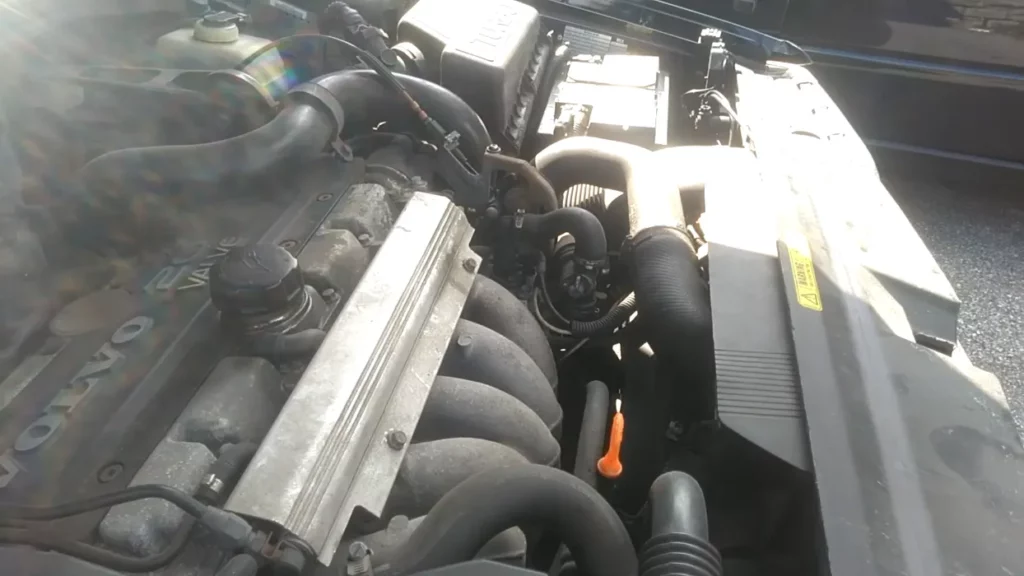
What If the Radiator Fan Didn’t Turn On with the AC?
If you run into a situation where the AC system has turned on, but the radiator fan didn’t activate, then the following issues can present themselves:
Engine Overheating
The first and most important issue that you will face is engine overheating.
Due to the radiator fan being deactivated, the airflow over the radiator isn’t enough to cool the engine coolant.
Therefore, the coolant won’t be highly effective on an engine that is already generating extra heat due to the AC activation.
If this continues, soon, the gaskets will start to fail due to extreme heat, and you will face oil and coolant contamination.
All of this will eventually lead to engine failure.
Damage to the AC System
If the radiator isn’t working as a second condenser fan, the refrigerant’s pressure will increase over time.
After reaching a certain threshold, the pressure will start to affect the components of the AC system. Cracked pipes, condensers, compressors, and evaporators will be the result.
If the situation isn’t handled in time, it may lead to permanent damage to the components, and your only solution would be to replace the entire AC system.
That being said, this is a rare situation as most modern vehicle models are equipped with AC pressure sensors that identify high pressures and turns of the AC if the pressure passes the recommended limit.
So, you won’t have to worry about facing this situation unless you are using a vehicle that doesn’t have this protection feature.
Suboptimal Performance from the AC
When the radiator fan isn’t working, it will not only hamper the engine performance but also the performance of the compressor.
As we have discussed earlier, the compressor is the heart of the AC system, and if it starts to overheat, then it will suffer from increased stress and won’t be able to perform optimally.
Trigger Electrical System Issues
In some rare cases, when the radiator fan doesn’t activate, it can put additional stress on the electrical system leading to electrical failures like blown fuses.
Overheating will also play a part in this and may lead to melted wires and connectors, battery misfires, and other system failures.
Generating Safety Risks
If the radiator fan isn’t working, it means overheating issues, and that may lead to a lot of safety concerns.
Malfunctioning systems, system failure, and sometimes completely dead vehicles can be the by-product.
Related Post: Top Radiator Hose Hot Bottom Cold [Reasons + Fixes!]
Reasons Behind the Radiator Fan May Stop Working
There may be several reasons behind the radiator fan not functioning. Here are the most common ones you should look into:
Electrical Issues
One of the most common reasons for the radiator fan to not work is electrical issues. It can be caused by a blown fuse or misconnected or damaged wires and connectors.
The fan motor can also burn itself out, which will lead the fan blades to stop rotating.
Malfunctions in the relays can disrupt the circuit that oversees the fan’s functionality.
Sensor Failure
The radiator fan is triggered by sensors when there is a rise in heat.
If these sensors are damaged or have started to malfunction, then it may lead to inaccurate readings and the fan not turning on.
Sometimes, dust and dirt can cover the sensors leading them to malfunction. That’s why proper maintenance and cleaning is required.
Damage to the Radiator Fan
If the radiator fan takes any sort of damage, like broken or bent fan blades or damaged motor, then it won’t spin or perform optimally.
The same goes for the fan control module. If there are some software issues which isn’t allowing the system to send signals to the fan, then the fan won’t start.
Wear & Tear
Over time, every component of a vehicle will start to wear down. And the radiator fan is no exception.
How to Fix the Radiator Fan Issue
If the radiator fan isn’t functioning, then first you will find out why this is happening and then take proper action.
Most of the time, you may have to replace the radiator fan completely. But getting it reviewed by a professional should be the first step before replacement.
If you are facing an electrical issue, then solving that would take care of the problem. The same goes for faulty sensors. You may have to replace them.
For more complicated problems like a failed control module, you will need to take your car to a mechanic, as a complete system overhaul may be the only solution.
Related Post: Does the Radiator of a Car Pull Coolant from the Reservoir?
Frequently Asked Questions [FAQs]
Can the AC system operate without the radiator fan?
Yes, the AC system can technically operate without the radiator fan, but it may reduce cooling efficiency and increase engine temperatures.
Can a faulty radiator fan affect the AC cooling?
Yes, a faulty radiator fan can negatively impact AC cooling by reducing airflow over the condenser, leading to decreased cooling efficiency and potential AC system malfunctions.
Is it safe to continue driving if the radiator fan doesn’t turn on with the AC?
No, driving for extended periods with a non-functioning radiator fan is not recommended, as it can lead to engine overheating, potential damage, and compromised AC performance.
Can I manually turn on the radiator fan if it doesn’t activate with the AC?
In some vehicles, it may be possible to manually turn on the radiator fan by using the fan control settings or overrides.
However, it is recommended to have the issue diagnosed and repaired by a professional to avoid potential complications.
Can a faulty radiator fan cause the AC to blow warm air?
Yes, if the radiator fan is not functioning properly, it can lead to inadequate cooling of the AC condenser, resulting in reduced cooling capacity and the AC blowing warm air.

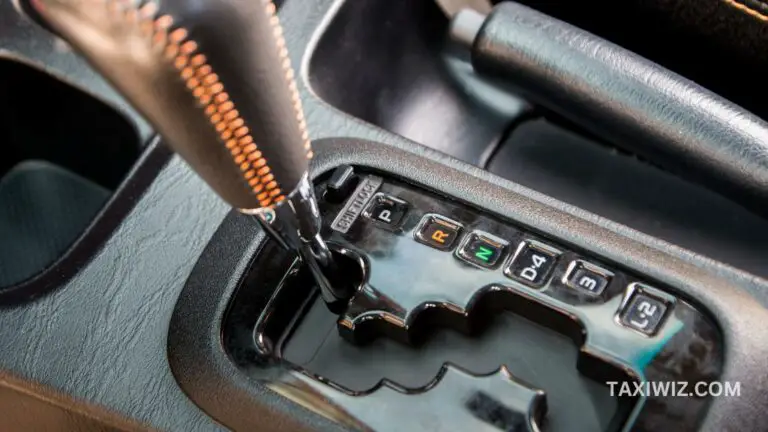
![Car Water Pump Bearing Noise [9 Fixes Explained]](https://taxiwiz.com/wp-content/uploads/2023/08/Water-Pump-Bearing-Noise-768x426.jpg)
